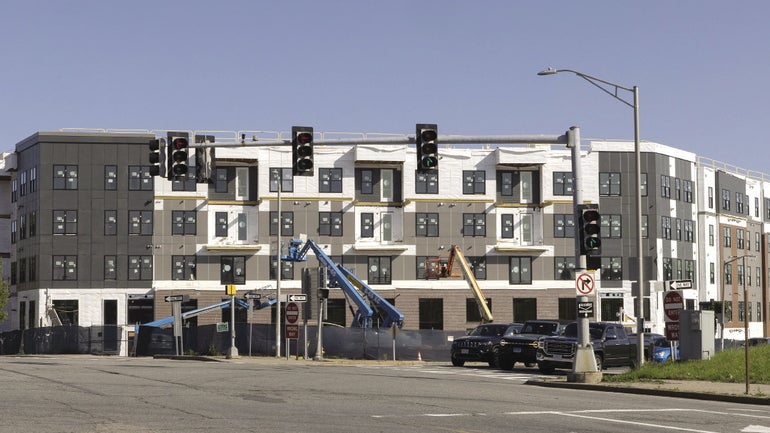Lawmakers and Gov. Maura Healey are optimistic that a major increase in borrowing authorization will begin to chip away at a statewide housing affordability crisis, but a new report warned that the actual spending impact could be smaller than the bond bill’s bottom line.
The Massachusetts Budget and Policy Center said the housing investment likely to stem from a nearly $5.2 billion housing law Healey signed in August is “more modest than the size of the bill might suggest.”
Pointing out that bond bills are only “a list of items for which the state is authorized to borrow money” and not a direct appropriation, report author Victoria DiLorenzo said actual investments tend to be lower than the maximum possible bonding.
“For example, the sum of housing capital budgets for Fiscal Years 2019-2024 was approximately 79.1 percent of what was authorized in the 2018 housing bond bill. Because the Affordable Homes Act is so much larger than the 2018 housing bond bill, actual investment will likely be a smaller percentage of the amount authorized,” DiLorenzo wrote. “An expansive bond bill such as the Affordable Homes Act may give the administration more options to choose from when making capital investments in housing, but overall limits on borrowing remain in place.”
The borrowing authorized in the latest bill is about 130 percent more than the 2018 version but the total planned housing capital investments for fiscal years 2025 through 2029 are only about 29 percent higher than the prior comparable five-year span, the report said.
DiLorenzo stressed that the capital investment plan is typically updated each year, and Healey or her successor could increase the amount flowing to housing beyond currently anticipated levels. The state is currently limited to about $400 million a year in capital spending on housing under its latest five-year capital budget.
The amount of planned capital spending in the next five years on public housing — a major focus of the bond bill — still lags well behind the state of good repair backlog, and waiting lists are growing longer for public housing and housing vouchers, DiLorenzo wrote.
“The Affordable Homes Act represents a meaningful increase in housing investment, but this increase is more modest than the size of the bill might suggest,” DiLorenzo wrote. “More importantly, the level of unmet need remains high in key areas such as public housing maintenance and the creation and preservation of income-restricted affordable housing.”

